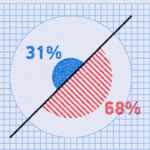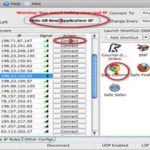Has Simulation Killed the Lab? If you asked most people these days this very question, you may get a slight pause while they evaluate the permanence of the internet in their life and make an assessment based on that. You couldn’t blame them either – in the 16 years since the turn of the century, when the internet as we know it really started to take off, most things that can be done online, are. And for good reason – the convenience of services being available 24/7, whenever you need something, is certainly alluring.
After they have a moment to think about their answer, most people might be apt to agree – that the simulations that can be done remotely from a laptop with an internet connection have ‘killed’ the lab. Although online technology courses continue to grow (13 years consecutively, in fact) the traditional lab that many of us know from our high school or college courses is still around and won’t be going anywhere anytime soon. But, it’s certainly interesting to note that as technology improves, internet speeds become faster and high speed internet becomes more available, especially in rural communities, that the convenience of enrolling in a course from afar and being able to complete it at your own pace is definitely here to stay.
Robotics engineers will be required to assist in all of these areas, from the assembly and programming of robots, to circuit design by an electrical engineer going through multiple rounds of electromagnetic compatibility testing.
What’s Holding Us Back?
Believe it or not, for a change of this magnitude to have taken as much of an effect as it has in only 13 years is truly remarkable. The entire education system, its processes and tried and true traditions are literally being re-written for the digital age. The internet has had that much influence. But not everyone is happy about it.
While the convenience is great, some educators believe that there is a certain experience that is lost from not being in the classroom environment. That face to face interaction trumps an online form a student fills out to complete their studies. But there may be a personal bias in these cases that stems from the very tradition that many educators were trained upon and have grown accustomed to over their teaching careers. No longer is it ok to have office visiting hours a couple of times a week. Teachers need to be much more flexible with the time they devote to answering questions, because those questions are now coming in at all hours of the day or night. Instead of handing a paper in that the educator then grades, students submit their essay or exam online, and the teacher needs to know how to retrieve these as well as manage them. This is where the friction lies. This is where there is resistance to the simulation or online environment.
What Options are Available for Students Who Strive in an Online Environment?
Luckily, many colleges have acknowledged the power of a remote education – where newly graduated high school students and adults returning to school to upgrade their skill set can both acquire those skills at their own pace from the comfort of their home.
Additionally, while almost all areas in education thrive with this type of learning environment, there are several that bode especially well. These tend to be courses that depend upon technical skills that require both a passion for technology as well as and a natural aptitude for technology skilled trades, such as:
- Robotics Technician: the robotics technician certificate program focuses on building students technical knowledge as well as introducing them to skills in industrial robotics. Students who may have experience in certain professions such as electricians, millwrights, and PLC technicians will benefit from the program content and experience with an industrial robot simulation.
- Electronics Technician: the electronics technician program offers a complete in-depth introduction to the fundamentals of applied electronics which can all be learned through the online course.
- Electromechanical Technician: The Electromechanical Technician Certificate program provides an introduction to electronics and electromechanical systems. People who enjoy studying electronics with an emphasis on mechanical systems will benefit from this course and again, all course material is delivered via a high end online technology course.
There was a time when these type of courses would need to be completed over a two or three year program but can now be completed in much less time if the student’s schedule allows it. With the advent of the internet, online distance learning was born, and the traditional classroom had begun to change. Year over year, we’re seeing continued increases in this type of learning and it makes much sense as courses that may not have been as accessible before, are now readily available for anyone at any time.






